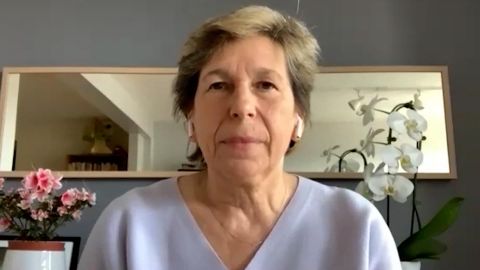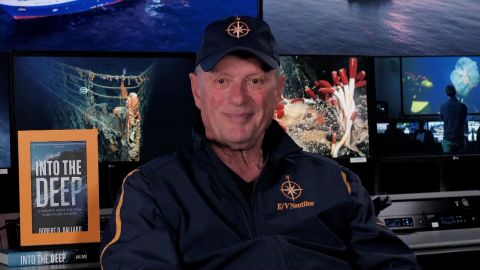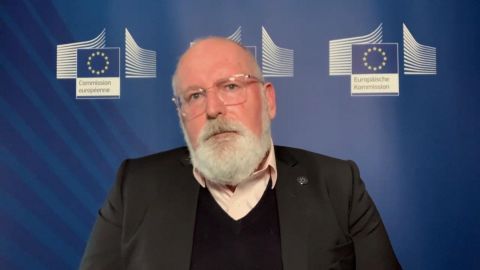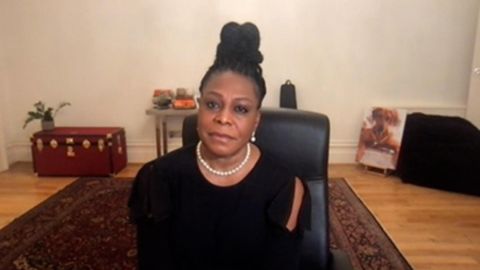Read Transcript EXPAND
BIANNA GOLODRYGA: Let the record show I did not call you old. You are anything but old. I wish I could have your energy. But let’s pick up on that discovery of your dyslexia at the age of 72. You view that as a gift and actually, it helped you when you located the Titanic. Can you explain how?
ROBERT BALLARD, AUTHOR, “INTO THE DEEP: A MEMOIR FROM THE MAN WHO FOUND TITANIC”: Well, you know, dyslexics, we have a different way of processing information. But we’re very visual creatures. So, imagine a person that really uses their eyes and their ability to create imagery in our mind. That’s our secret. We take in a lot of information and then we form a three-dimensional image in our mind. So, here we are we found the Titanic in 1985. We’re going back in 1986. We get in our submarine, we found it initially with robots. We are now heading down. As soon as we hit the water, as you’ll see, everything started going wrong inside the submarine tracking. Navigation, sonar, everything. And the pilot said, well, I don’t know where we are. And I said, I do. Keep going. And we finally, after a two-and-a-half-hour descent, landed on the bottom 12,000 feet down, pitch black, look out the window and my pilot says, well, smarty pants, where is the Titanic? I closed my eyes and I went there. And that’s where it was. How I did that, I didn’t know how I did it then, I now know how I have that gift to do it. And it’s been so useful to me in all my explorations and I want other fellow kids in the world that have dyslexia to embrace it as the wonderful gift that it is.
GOLODRYGA: It will be such an inspiration for anybody who is struggling with dyslexia to be able to hear this to story and know they can have whatever career they want despite their dyslexia and maybe in spite of it, maybe because of it, they can achieve wonderful things.
BALLARD: Because of it.
GOLODRYGA: Right. And it’s interesting. I don’t want to spend too much time talking about the Titanic because it’s actually something that has been consuming your life for better or worse and there were many other discoveries, but what I found really interesting was the discovery that happened to coincide with the Cold War. And you had been sent on a mission to help find some submarines and then in addition to that was when you requested to also find the Titanic. So, this was some sort of top-secret mission that you can only reveal years later.
BALLARD: Well, that’s right. You know, I was a cub scout, boy scout, army officer, naval officer and I was always taught to tell the truth. And yet, I was not allowed to tell who was really funding my expedition. I know the Pentagon was very nervous. In fact, my commanding officer, Admiral Thunman, called me on the carpet and said, Commander Ballard, you are supposed to look for the Titanic, not find it, because they are worried that they would realize I was actually exploring two nuclear submarines we lost during the Cold War, and in particular, the USS Scorpion that was carrying nuclear weapons and they didn’t want to draw the Soviet’s attention to us. So, yes. But now I can tell the truth.
About This Episode EXPAND
Frans Timmermans; Dr. Ayoade Alakija; Randi Weingarten; Robert Ballard
LEARN MORE



